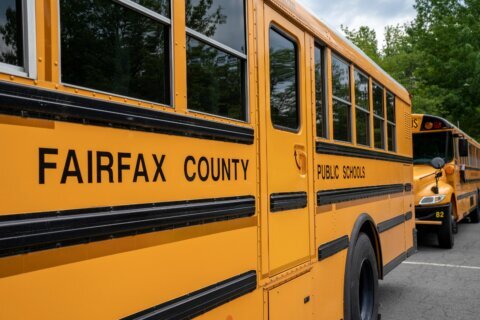Lawmakers in Fairfax County, Virginia, are again exploring the possibility of a meals tax as one option to create an additional source of revenue.
At a Board of Supervisors meeting Tuesday, lawmakers voted 9-1 to direct County Executive Bryan Hill to look into the benefits and downsides of adopting a meals tax. It would range from 1% to 6%, and apply to food and drinks prepared at restaurants and grocery stores.
The vote comes weeks after the board approved a fiscal 2025 budget that includes raising the residential tax rate by three cents. Residents are facing an average real estate tax bill increase of about $450, and lawmakers are still searching for more revenue streams.
Several surrounding jurisdictions have a meals tax, and proponents say it will provide additional funding for schools and other county needs. But critics argue it unfairly targets one industry and could prompt residents to dine out less frequently.
“This is just one of those tools that I believe, at this time, we need to consider to understand the cost, the benefits,” Supervisor Dalia Palchik said. “We cannot continue to rely so heavily on our real estate taxes.”
Fairfax County voters have rejected the idea of a meals tax twice. Most recently, in 2016, a 4% tax on prepared meals at deli counters, restaurants and convenience stores failed to pass. However, a Virginia state law adopted in 2020 allows jurisdictions to put a meals tax in place without feedback from voters.
“Nowhere in here does it say the board is approving a meals tax in this resolution,” Chairman Jeff McKay said. “The only thing this does is ask us to get data.”
Though the board isn’t expected to be briefed on the positives and negatives of the idea until September, some are worrying about the impact the plan could have on restaurants.
Gary Cohen, executive vice president of government affairs and franchising with Glory Days Grill, said the consequences of a meals tax could be significant, because many people are already eating out less often.
“I know a lot of families that used to eat out six times a month are now only eating out three times a month,” Cohen said. “This may be just the thing that tips them into not eating out at all. Especially lower income families, they’re the ones that can least afford another tax right now.”
The possible meals tax, Cohen said, makes it feel “like they’re trying to solve all their financial problems on the backs of restaurants.”
“You can’t stop paying your real estate tax or you’re gonna get evicted from your house,” Cohen said. “But it’s really easy for people to stop eating out, and if they’re not stopping, they’re certainly cutting back, and that’s my biggest fear.”
Supervisor Pat Herrity, the lone local lawmaker to vote against the idea to look into the possibility of a meals tax, said at this week’s meeting the board should review its own spending before adding a new tax.
The county will keep advocating for additional state and federal funding, but Palchik said leaders “need to find ways that are beyond just our real estate taxes to be able to fund our very important in county services.”
Get breaking news and daily headlines delivered to your email inbox by signing up here.
© 2024 WTOP. All Rights Reserved. This website is not intended for users located within the European Economic Area.








